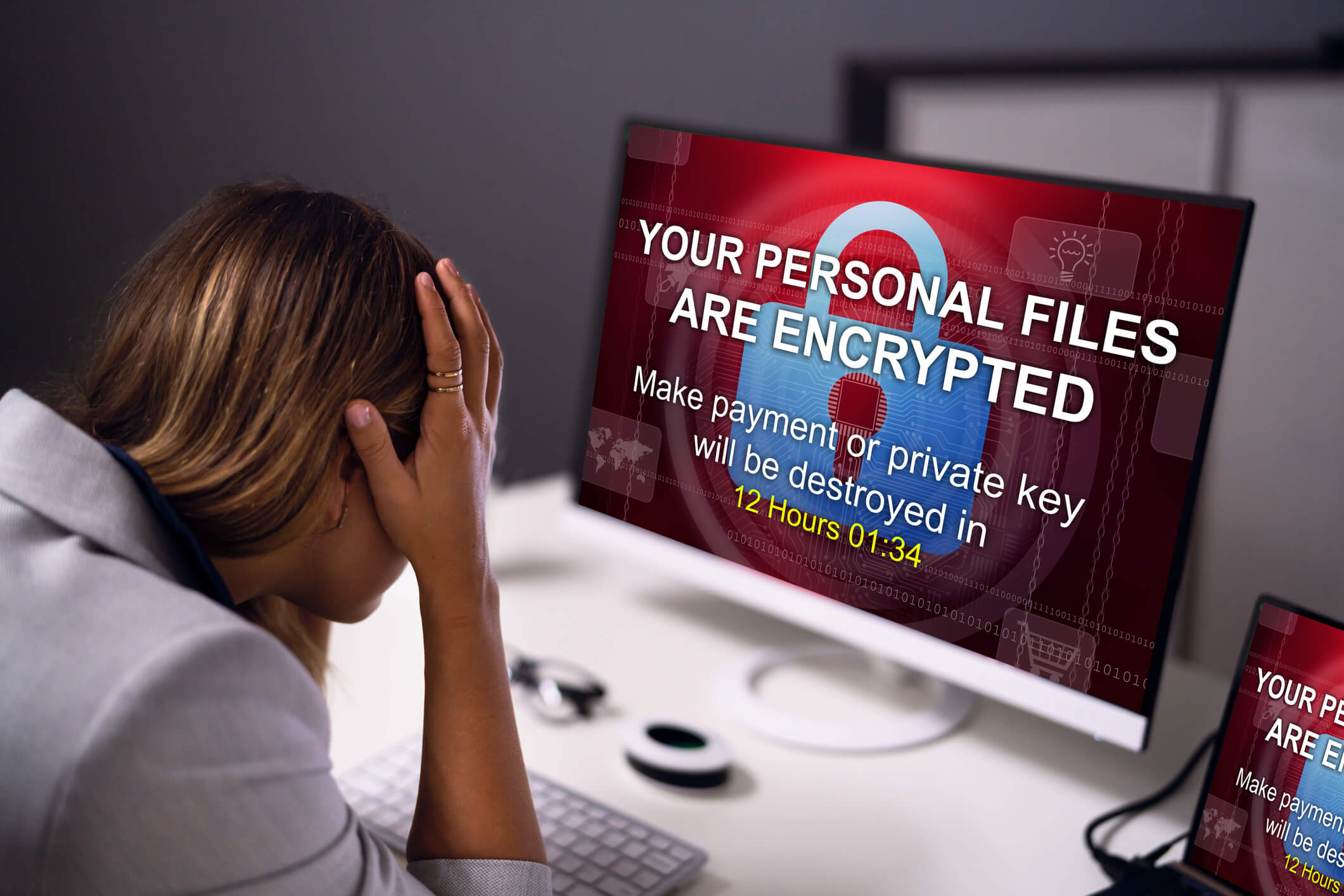Ransomware And What To Do About It
Ransomware is malicious software (malware) designed to encrypt files on a victim’s computer or network with a ransom demand for payment for the decryption key. It is a form of cyber extortion that times have severe consequences for individuals, businesses, and organizations.
The attack often displays a message on the victim’s screen, informing them that their files have been locked and providing instructions on paying the ransom to obtain the decryption key.
Hackers carry out ransomware attacks to profit financially from their activities. They may demand payment in a specific cryptocurrency, such as Bitcoin, to make the transaction more difficult to trace. The amount of ransom required can vary widely up to millions of dollars.
Victims of ransomware attacks face a difficult decision. Whether to pay the ransom, as there’s no guarantee that the cybercriminals will provide the decryption key, also encourages further attacks. When a ransom is paid and the files decrypted, the victim’s system may still be compromised, leaving it vulnerable to future attacks.
Preventing ransomware attacks involves implementing various security measures, such as regularly updating software and operating systems, using strong and unique passwords, employing anti-virus and anti-malware solutions, being cautious with email attachments and suspicious links, and regularly backing up important files to offline or cloud storage.
How To Know If You’re A Ransomware Victim?
If you’re not sure whether you’re a victim, here are some signs from Net10.net to look out for:
Encrypted Files: Ransomware typically encrypts your files, making them inaccessible. It could indicate an attack if you cannot open or access your files and notice unusual extensions added to them (e.g., .locked, .encrypted, .crypt).
Ransom Note: Ransomware often leaves a ransom note or message informing you that your files have been encrypted and providing instructions on making the ransom payment. This note may appear as a text file, a pop-up window, or even the desktop wallpaper.
Changes To File Names Or Extensions: Ransomware may alter them, making them unrecognizable or adding random characters.
Unusual Network Activity: If you notice unusual network activity, such as slow internet speeds, frequent crashes, or unexpected network connections, it could indicate that malware is actively encrypting your files or communicating with its command and control servers.
Disabled Security Software: Hackers may attempt to disable your anti-virus or anti-malware software to avoid detection. If your anti-virus software is disabled or you cannot start it, that could be a red flag.
Pop-Up Messages Or Warnings: You might see notifications on your screen claiming that your computer is infected and demanding payment to resolve the issue.
System Issues Or Strange Behavior: Successful attacks may cause your computer to slow down, freeze, or crash frequently. You might also experience unusual behavior, such as the appearance of new, unfamiliar programs or icons on your desktop.
If you notice signs similar to these, it is crucial to act quickly:
Disconnect From The Network: Immediately disconnect from the internet and disconnect any other devices or shared drives to prevent the ransomware from spreading further.
Report The Incident: Contact your IT department or hosting provider and report the incident, or contact the authorities such as law enforcement or a dedicated cybercrime reporting agency.
Seek Professional Help: Consult with a Cybersecurity Expert or an incident response team to assess the situation, mitigate the damage, and potentially recover your encrypted files. Net10 Internet Services, LLC makes daily, weekly, and monthly backups to restore files.
Prevention is better than dealing with the results of a ransomware attack. Regularly backing up your files, maintaining up-to-date security software, and practicing safe online habits may reduce your risk of being a victim. Check out our highly-rated blog posts to learn more and obtain expert tips from Net10.net. Especially read our “Email Phishing Attacks And Preventative Methods” and this timely follow-up blog, “Ransomware And How To Protect Your Data for additional advice.
If you have concerns about protecting your data, contact us today! We are here to help and have many cost-effective solutions for every size of business, no matter how small or large your organization is.

